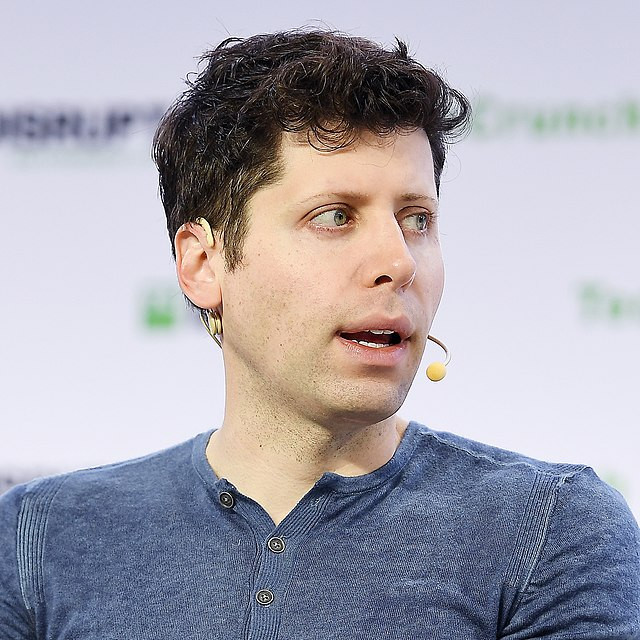OpenAI co-founder Sam Altman's long-awaited project WorldCoin, a Web3 crypto initiative, has officially launched. Conceived three years ago, it is touted as a potential identity solution for the AI era.
On July 24, Altman and WorldCoin CEO Alex Blania issued a joint announcement proclaiming the global launch of the WorldCoin project. From its inception three years ago, they have sought to create a new identity and financial network accessible to everyone, providing a dependable method of distinguishing between humans and AI.
They believe that if successful, WorldCoin could significantly increase economic opportunities and personal empowerment on a global scale, while ensuring privacy and potentially paving the way for an AI-funded universal basic income (UBI).
WorldCoin consists of a privacy-protecting digital identity (World ID) and the digital currency WLD, which is only available to humans where legally permitted. They aspire to actively extend its benefits to more people, especially in regions with unclear legal guidelines such as the United States.
News of the launch sent the price of WorldCoin's WLD soaring by 90% to $3.34. The world's largest cryptocurrency exchanges, Binance, Huobi, and OKX, all announced that they had listed WorldCoin for trading.
As per data from CoinMarketCap, by 12 p.m. local time, the WLD token had risen by 88.4% to $3.14. The fully diluted valuation of the WLD token now stands at $28.84 billion, calculated by multiplying the current price by the total supply, including tokens not yet in circulation.
Altman emphasized in multiple interviews that the implementation of WorldCoin will provide a reliable solution to differentiate humans from AI. Together with WorldCoin, Altman plans to use iris scanning to ensure that each individual can only have one WorldCoin ID. Upon agreeing to an iris scan, WorldCoin will gift users cryptocurrency.
Analysts have pointed out that in the era of ChatGPT, distinguishing between humans and bots is receiving increased attention, and this unique ID strikes a chord with current market focus.
However, according to Worldcoin's website, due to regulatory uncertainty stemming from the crackdown on the cryptocurrency industry by the U.S. Securities and Exchange Commission, the WorldCoin launch in the U.S. has been postponed.
Iris Scanning Faces Ongoing Criticism
Since launching the WorldCoin project three years ago, Altman has divided the project's mission into three parts: creating a unique ID verification process (World ID), issuing related cryptocurrency, and developing corresponding applications, namely the World App.
World ID verification service launched earlier by offering iris scanning as proof of identity, along with related encryption services. On May 8, Altman also launched a new product, the crypto wallet World App.
In an era where large language models (LLMs) and ChatGPT are popular, AI is gradually blurring the line between humans and machines. However, Altman believes that blockchain technology can differentiate between humans and AI. The new application aims to serve as a crypto wallet on one hand and an "identity card" in the AI era on the other.
Worldcoin operates as a Layer 2 network on Ethereum with a token supply cap of 10 billion. Apart from the 2 billion reserved for the Worldcoin Foundation and investors, the remaining 8 billion will be distributed for free worldwide.
However, the long journey is not without obstacles. A primary issue for large-scale distribution is how to ensure tokens go to actual "humans" rather than code or machines, and how to avoid repeated claims by the same individual.
To address this, Worldcoin launched one of the most ambitious and controversial user airdrop campaigns in the crypto world: biometric airdrops.
As early as 2021, Bloomberg reported concerns about the project's practice of giving away cryptocurrency to users who consented to iris scans. Some quickly deemed it a crypto scam, while others questioned whether an emerging startup collecting biometric data could genuinely protect participants' privacy.
Rebranded as a 'Human Identity Verification' Project
Affected by negative news coverage and turbulence in the crypto industry, the WorldCoin project initially faced hurdles.
Privacy and surveillance experts warned that collecting biometric data, even without storing it, remains a risky venture. In October 2021, famous NSA whistleblower Edward Snowden expressed concerns about WorldCoin's ID plan.
According to tech media outlet Coindesk, Altman claimed his cryptocurrency could be distributed equally to everyone in the world as a so-called "universal basic income plan." However, influenced by the turmoil in the crypto industry and recent excitement around AI, in March of this year, Altman rebranded it as a project focused on "identity verification," announcing that the World ID protocol would allow app developers to use its biometric verification to authenticate humans.
Tiago Sada, the product head of Tools for Humanity, the company behind Worldcoin, said, "Everything that has happened related to AI in the past six months has helped people understand this project better."
Altman had previously stated that due to the advancement of AI, the demand for systems providing "human proof," wealth redistribution, and a "global governance system" is growing. However, to truly realize Altman's vision, over a billion people need to join, including those opposed to biometric technology and cryptocurrency.
According to previous media reports, WorldCoin is also working on a corporate strategy to promote its technology to other applications for user identity verification, which could potentially be the company's most promising and profitable strategy.






